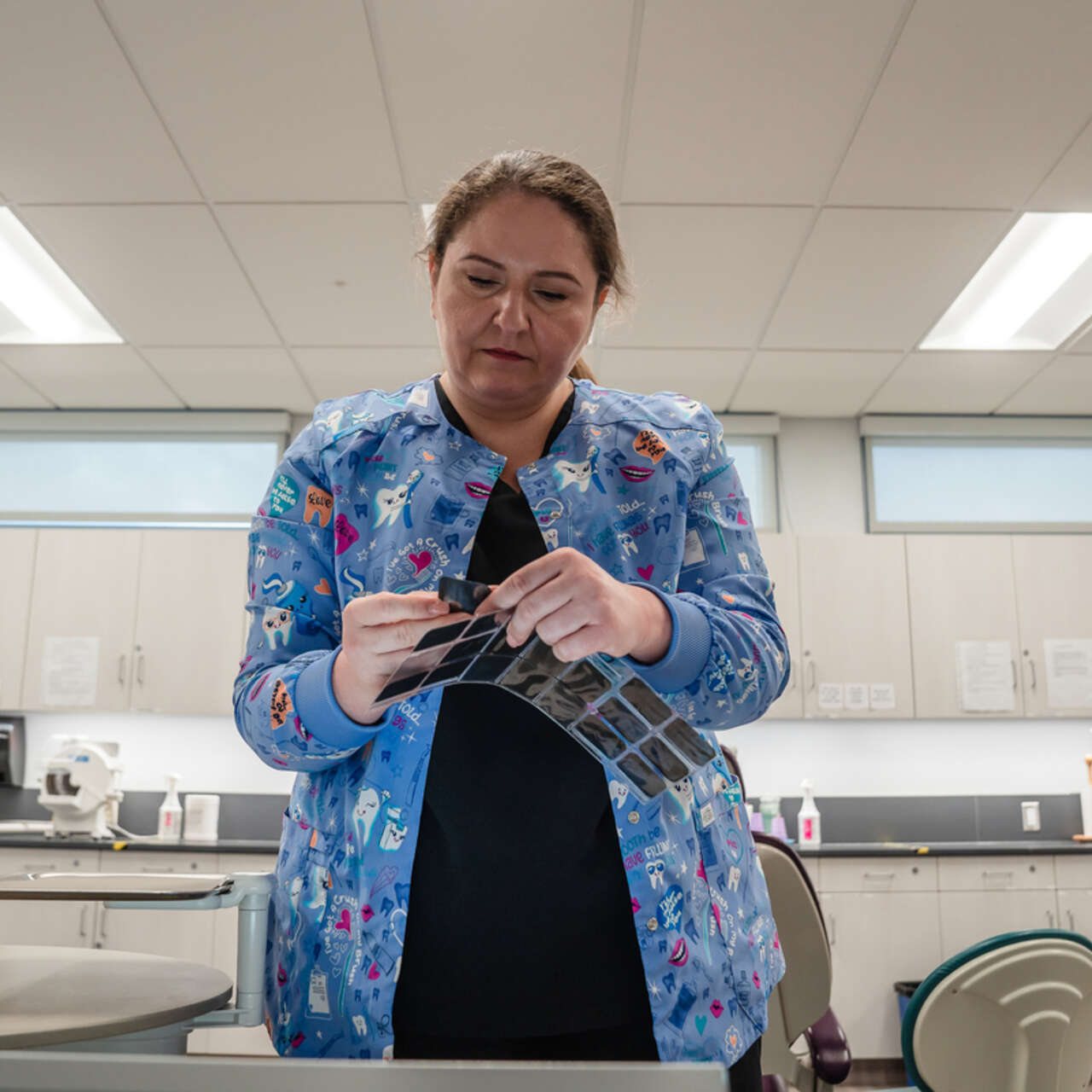
Meet Yuliia, who’s restarting her dream career after fleeing war in Ukraine
“To continue my professional life in dentistry, it’s like fresh air.” Refugee mother Yuliia has found a new purpose as she restarts her career after fleeing war in Ukraine.

“To continue my professional life in dentistry, it’s like fresh air.” Refugee mother Yuliia has found a new purpose as she restarts her career after fleeing war in Ukraine.
When Yuliia and her husband fled the war in Ukraine with her five-year-old and newborn baby, she didn’t know if she’d ever continue her dentistry career again. As the family resettled in San Diego, California, they were connected with the IRC’s Workforce Integration for Newcomers (WIN) project which has helped Yuliia get back into her profession and feel herself again.
As an orthodontist in Ukraine, 39-year-old Yuliia worked ideal hours to be home with her family in the morning while still having a full list of clients for the afternoon when teenagers got out of school and adults finished up at work.
“I was part-time because, for an orthodontist, it’s not necessary to work full-time in Ukraine,” Yuliia said. “It was very good, because I’d just had a kid, and I can spend less time at work and earn money and spend a lot of time with my kid.”
Yuliia lived a full life in Kharkiv with her husband, Astem, and five-year-old daughter, Zlata. In 2021, as they were seven months into expecting their second child, the conflict escalated, and Kharkiv was hit by shelling.
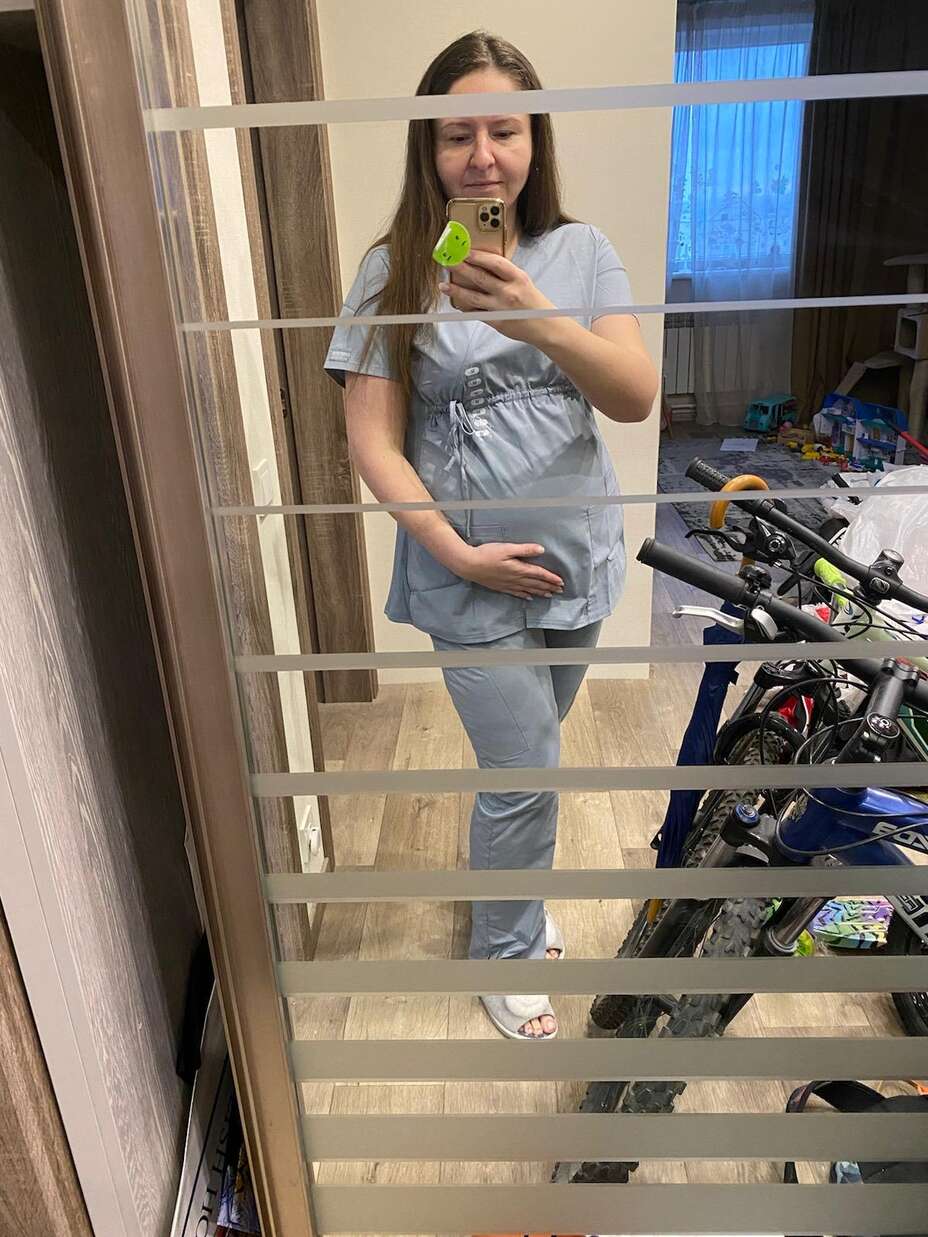
Yuliia recalls how she would always take the same route to get to the doctor for her regular checkups. One day, as she approached one of the car services she would always drive past, she saw it had been completely bombed and destroyed.
”You’re like, what is the next day?” says Yuliia. “You don’t know what is next. And you don’t want to feel these emotions. You’re very scared about it, and you want to move as far away as you can.”
Yuliia and Astem made the difficult decision to leave for the sake of their children. They waited nervously for their international passports, which was their ticket to safety. Five days after giving birth to their son, Roman, they received them. “It was very intense because you need to take a five-year-old and a toddler… You have a small one who is breastfeeding.”
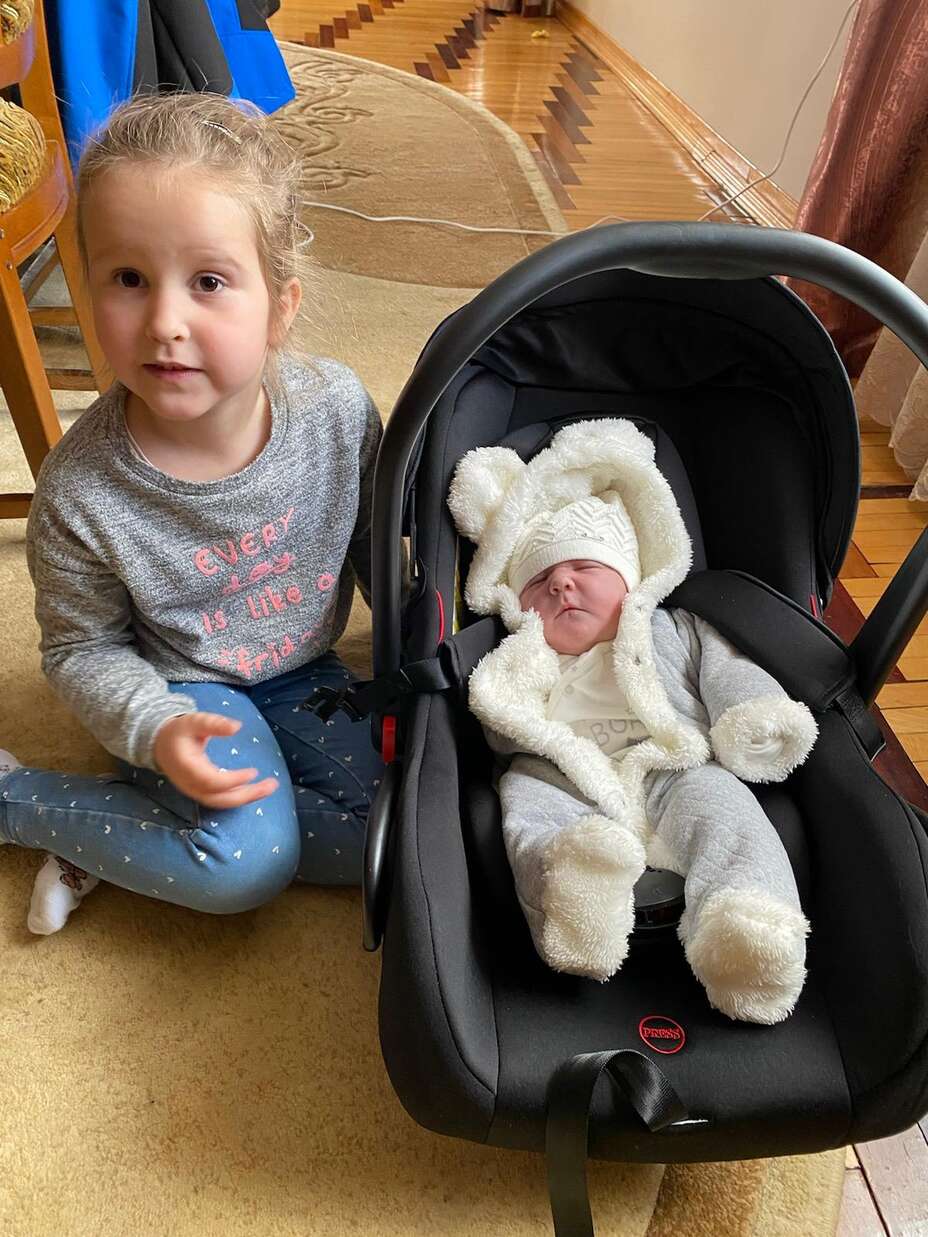
The family left Ukraine in 2022, spending a few months in Germany before receiving visas for the U.S.
Yuliia had never been to America before, and adjusting to her new home took time. “The first months, I was crying a lot because I finally relaxed a little from that period when we needed to do a lot of things to move somewhere,” Yuliia explains. “I felt like I was in a very safe place, and my old feelings came out. I cried maybe around the first month here. Your emotions are up and down all the time.”
Yuliia was thankful for all of the initial support she received from the IRC, including clothing, toys for her children, cash assistance, and a laptop for her to partake in online English courses.
But after spending almost all her time at her new home with the children, learning English in between her son’s nap schedule, Yuliia dreamed of getting back to work, both to support her family and to get some semblance of her life back.
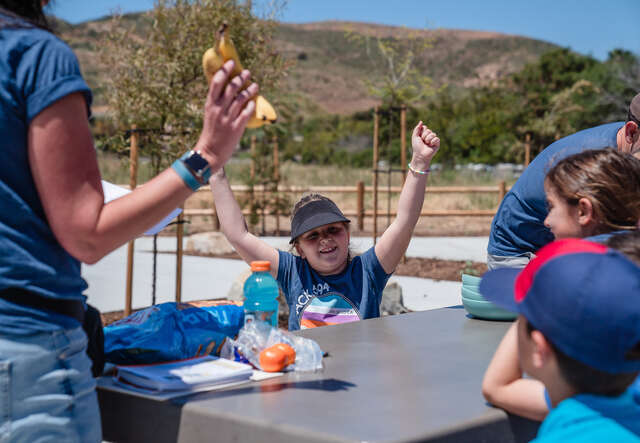
“Going back to work, it’s like back to your life,” Yuliia says. “Sometimes you need more than only your family. You need communication with other people. You need to do something in the professional sphere because you start to feel useless.”
When you start to work, you finally feel in good balance with your life and with your mental health.
Yuliia contacted the IRC about her hopes for employment again and was put in touch with Reem, a career development specialist at the IRC in the San Diego office.
Reem recalls when she first met Yuliia. “She wasn't sure where to start or how to start. She asked me, ‘What are the steps needed here to go for the evaluation and recertification?’” Reem helped advise Yuliia through the steps to get recertified as a dentist in the U.S. and discussed her career goals over a couple of meetings.
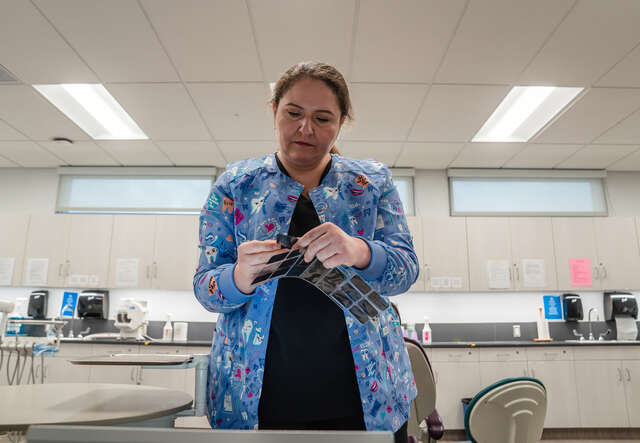
The Workforce Integration for Newcomers (WIN) project provides skills and pathways to prepare refugees for opportunities for long-term success and the future of work. Yuliia was supported from the very first step with financing her studies all the way through to her final job placement. This enabled her to return to school and get certified as a registered dental assistant through a program at Grossman Health Care Occupation Center that uniquely pairs ESL and dentistry.
“She is one of those motivated people with self-initiative,” says Reem about Yuliia. “She always reached out to me like, ‘I want to do this. I want to go to this school. I want to attend more English classes.”
“She worked really hard to develop more skills, so she can adapt to the school environment here as well as feel integrated and confident about talking to people, communicating with the instructor, and coming to the IRC office. In a short time, she was able to have this confidence.”
Today, Yuliia is a practicing registered dental assistant in San Diego, conducting tasks including X-rays and sterilization of instruments.
“The International Rescue Committee may be the best thing that’s happened here with us, with our family, because we have so much support from this organization, from the case workers. They always try to do their best.” Yuliia said.
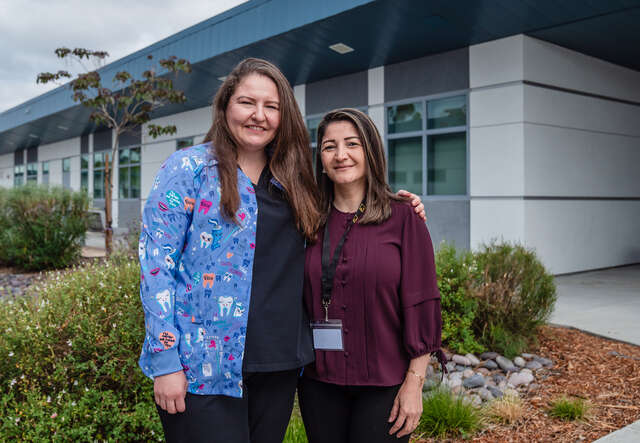
“My caseworker, Reem, found a school for me. She went with me to school to register for everything,” recalls Yuliia. “She explained everything. It was very helpful for me because I don’t know how education works here because it’s different, not like in our country.”
Yuliia is still learning how best to manage the challenge of being a working mom. “First of all, you need to be a good manager of your family, which is always a challenge because you need to know about the kids’ schedules, about their school, about the small kids, about their day nap or feeding. And you need to make your life around the kids’ schedules,” she explains.
“We try to make a full life for us and for the kids at the same time. You’re trying to be in balance with your work, with your family, with everything.”
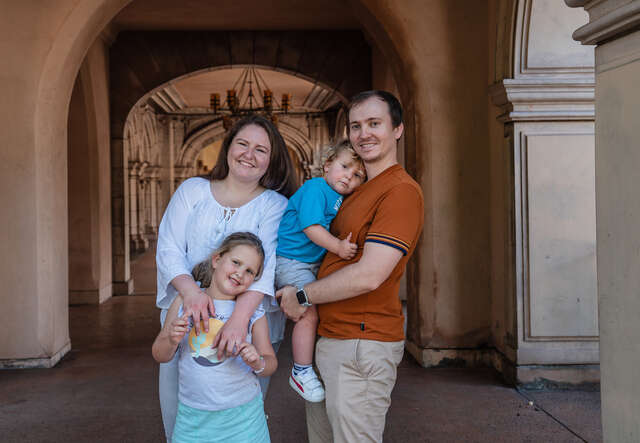
While her new work schedule has been a big adjustment, Yuliia has adopted a new life motto that everyone could use to help balance their lives.
“I remember in my school when I went for the CPR class, they had some sentences on their wall about not being perfect, but good enough. And I’m trying to be good enough. Not a perfect mom, not a perfect worker. Just be good enough to be there and be present. I think now that’s my philosophy with my life.”
While Yuliia is unsure about what the future holds for her family, she is very grateful to be back in a profession that she loves. She hopes to continue her studies so that she can retrain as a dentist and get a residency.
“For me to continue my professional life in dentistry, it’s like fresh air. Like fresh breath from the ocean. It’s something you start to do, what you did before, and it’s a very nice feeling.”
Yuliia found educational and career support through the IRC’s Workforce Integration for Newcomers project. Through WIN, Yuliia was able to go back to school and begin her retraining as a dentist in the U.S. She is currently working as a registered dental assistant (RDA) and hopes to continue her studies to become a dentist again.
The Workforce Integration for Newcomers (WIN) program runs for two years (from December 2022 to December 2024) across six locations: the United Kingdom, the U.S. (New York & San Diego), Germany, Italy, and Poland. The program covers individual coaching, including career counseling and job readiness training, and systems-level work, including capacity-building of public workforce systems to better serve diverse job-seekers. Since the WIN project was launched in December 2022, the program has served 934 clients, 47% of which are Ukrainian.